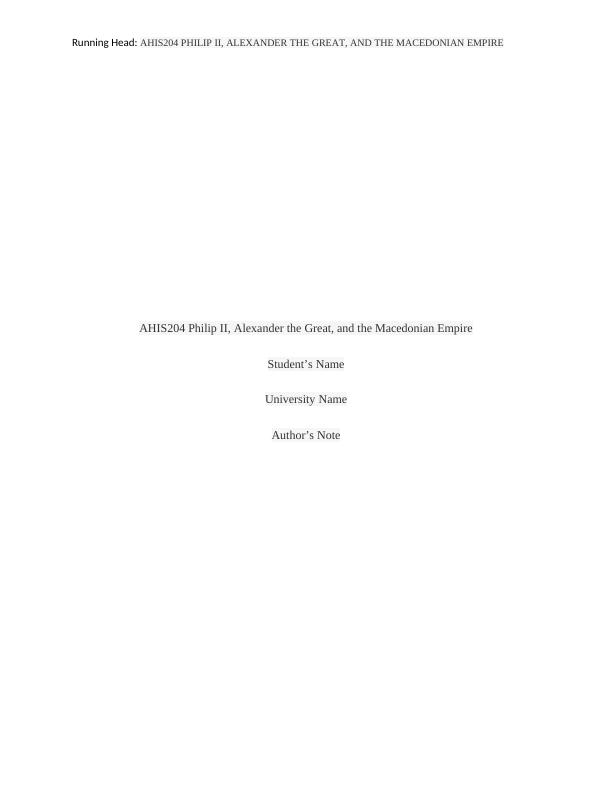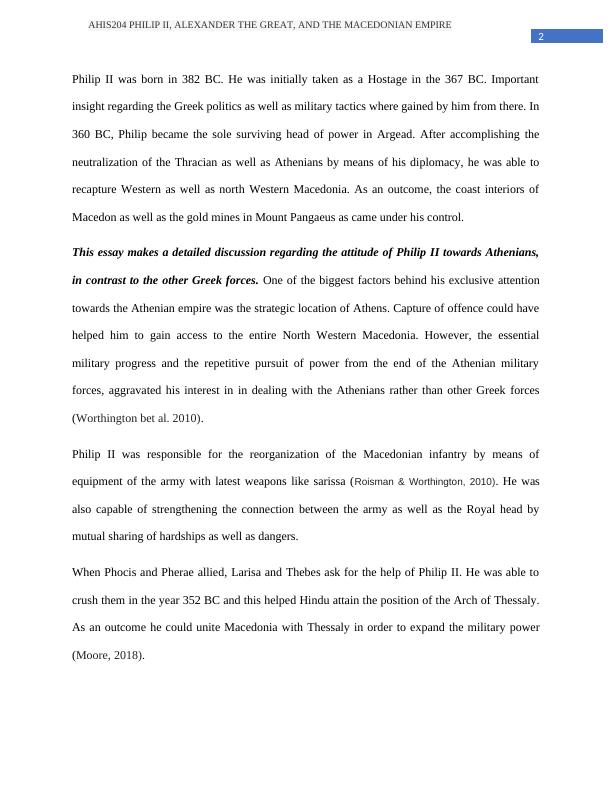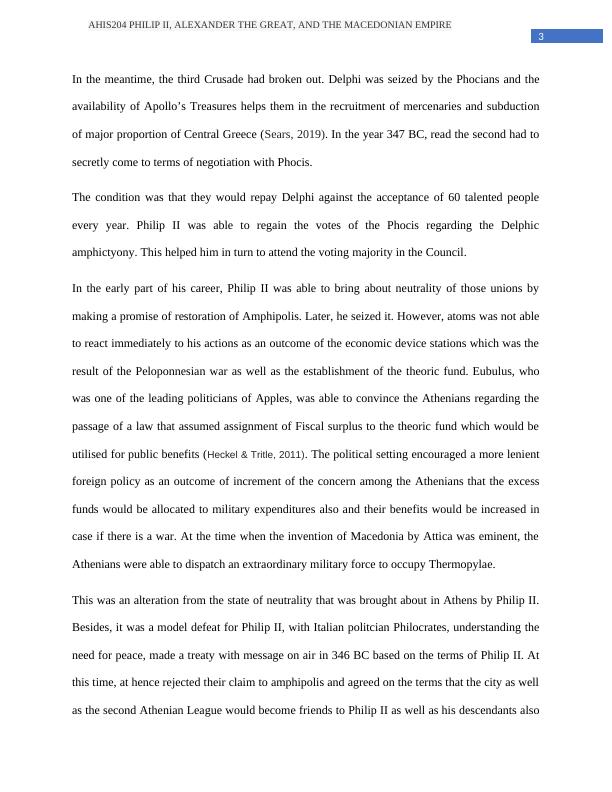Philip II, Alexander the Great, and the Macedonian Empire
Rubric for grading a research essay based on argument and critical evaluation of evidence, structure and organization, use of primary sources, and use of secondary sources.
8 Pages1776 Words354 Views
Added on 2023-03-30
About This Document
This essay makes a detailed discussion regarding the attitude of Philip II towards Athenians, in contrast to the other Greek forces, and his military tactics in the Macedonian Empire.
Philip II, Alexander the Great, and the Macedonian Empire
Rubric for grading a research essay based on argument and critical evaluation of evidence, structure and organization, use of primary sources, and use of secondary sources.
Added on 2023-03-30
ShareRelated Documents
End of preview
Want to access all the pages? Upload your documents or become a member.
History of the Macedonian Army: From Weakness to Greatness
|5
|1114
|85
Military Conquest of Philip the Second
|5
|910
|65
Alexander and the Hellenistic World
|11
|2982
|2
Achievements and Failures of Alexander in Handling the Persian Empire
|8
|2860
|500
History of western civilization PDF
|5
|1021
|341
Strategies of Alexander in the Battles of Issus and Gaugamela
|6
|1084
|378



